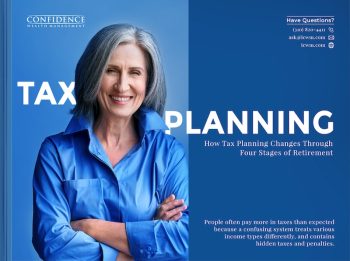A client of mine recently came to me for advice. He’d just been named the executor of a friend’s estate and though he’d accepted the job with a lot of joy, he confided in me how nervous he was. It was a huge honor, but he’s a smart guy. He knows what a giant responsibility it is.
Properly administering an estate means facing several potential pitfalls that can cost your loved one their wealth and you peace of mind. And it can all come to a head when you’re least able to handle your emotions. I assured him that there are steps you can take to dodge the biggest mistakes and ensure a smooth process.
First, let me get some basics out of the way.
The executor of an estate is the person in charge of administering a person’s belongings after they’re no longer with us. This includes paying off any debts or taxes and distributing the remaining assets to the estate’s named heirs (or according to state law if there isn’t a will).
If you’ve been named the executor of an estate, you are legally required to wrap up its affairs, arrange for the payment of any income and estate taxes, and distribute the assets. It sounds simple enough, but all too often things get messy.
Executors who act without quality legal guidance can make mistakes during the process of carrying out these responsibilities—mistakes that expose the estate to litigation, increased tax liability, and other potentially serious consequences.
This is what my friend was concerned about.
So I told him about these five big mistakes executors make and how to avoid them.
Mistake #1: Making Distributions Too Early
As executor, you are liable for the estate and its distributions. So it follows that if you make distributions from the estate—handing out money to family members, for example—before taxes and other liabilities are paid, you are personally liable. The same is true if you make disproportionate payments to family members.
You should avoid these “at risk” distributions because you’re putting yourself on the line. That’s not to say you can’t make these distributions, but a miscalculation or unexpected claim can cause you a lot of problems.
For example, just consider what it would be like to get a tax bill you didn’t know was coming that requires you to go to one of the family members and ask for the money back. What if they don’t want to give it to you? Or if they’ve spent it all?
Things can get ugly fast.
Mistake #2: Failing to Make the “Portability Election”
Portability is the idea that a surviving spouse can make use of both his or her federal estate tax exemption and the unused exemption of the deceased spouse. It allows a married couple to shelter more money from any federal estate tax liability.
Sounds great, but this estate tax exemption can often cause a problem for surviving spouses when the entire estate of the deceased is sheltered from estate tax. This is easy to overlook because you have to ask for it.
Even if no estate tax is due upon the death of a spouse, the executor of the estate must elect portability by filing an estate tax return on Form 706 within 15 months of their loved one’s passing with the filing of a proper extension.
If you don’t use it, you lose it.
Mistake #3: Failing to Properly Advertise the Estate
When you become executor, you may need to advertise the existence of the estate in a local newspaper. This is because creditors need to be notified so they can make claims on the estate.
Each state has different laws about this, but if you fail to meet a state’s notice requirements you might expose yourself to the estate’s creditors.
Mistake #4: Failing to Liquidate Securities Through a Market Downturn
As executor, you’re responsible for managing the estate’s assets – including any stock portfolios. While you don’t need to be Warren Buffet, you also can’t ignore it. Failing to monitor the market’s and the estate’s investments could mean they lose a lot of value.
As executor, you’ve taken on fiduciary duties. That means you are legally required to act in the best interests of the heirs or other beneficiaries of the estate and to follow what instructions your loved one left for you.
So the health of the estate falls on your shoulders. Managing that health might involve buying or selling stocks or other securities during bull and bear markets.
Mistake #5: Failing to Properly Conclude the Estate
Sometimes, executors distribute most of the estate’s assets and then think their job is done. But there is a process to concluding an estate, and if you don’t go through it you are not finished.
This process may involve filing a family settlement agreement with the court showing that all beneficiaries agree that they received their share of the estate or going through a court accounting process where a judge ultimately approves of the distributions.
I recommend you work with an accountant (or an estate administration lawyer if the estate is very complicated) to ensure all tax matters are concluded before the estate is finished with administration.
In Conclusion
I was able to ease my friend’s concerns by pointing out these major potential mistakes and guiding him around them.
Being named executor of a loved one’s estate is a huge honor and a huge potential burden if you don’t know what you’re doing.
As experienced financial professionals, we are here to help you overcome the obstacles that executors often face so you can perform this duty admirably and with peace of mind.
Please contact us and let us help you manage your loved one’s affairs. We would be delighted to go on the journey with you.









